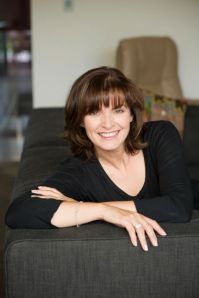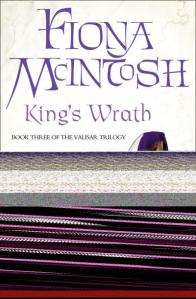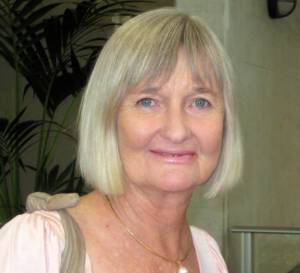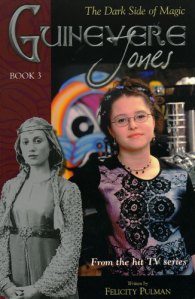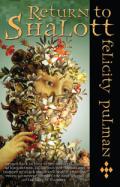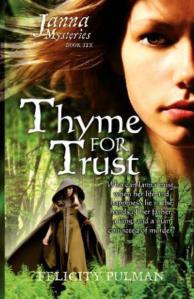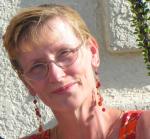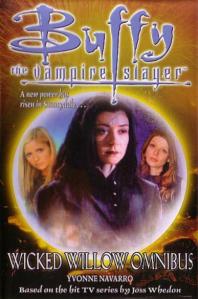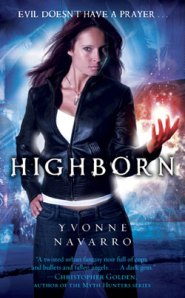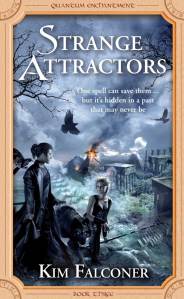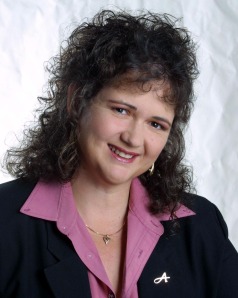I have been featuring fantastic female fantasy authors (see disclaimer) but this has morphed into interesting people in the speculative fiction world. Today I’ve invited the talented Claire Corbett to drop by.
Watch out for give-away details at the end of the interview.
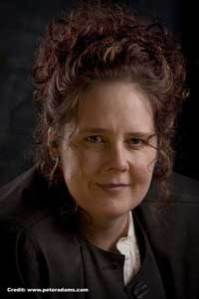 Q: Your book When we have Wings appears to be a near future story with elements of the detective genre. The cover makes it look like a cross between a dark urban fantasy and a literary novel. Did you have any say in the cover design?
Q: Your book When we have Wings appears to be a near future story with elements of the detective genre. The cover makes it look like a cross between a dark urban fantasy and a literary novel. Did you have any say in the cover design?
No, none whatsoever. In fact my publisher only showed it to me when they’d finalised it. I think they wanted to avoid stressing out the new author until they’d solved all the challenges to their satisfaction. I’m lucky that the talented, award-winning Sandy Cull was chosen to design my cover. I’m glad you used the L-word, literary! Allen & Unwin was very concerned to get that message across – that this is a book with exhilarating ideas but with real love and concern for the craft of writing.
It can be good, having the publisher protect you a bit. Writing can be so exposing, anxiety-provoking. You don’t realise how vulnerable you feel till you’re published. I also like the sense of collaboration, that when you’re picked up by an agent and a publisher your work now exists in a larger sphere. It’s exciting that my work now sparks the imaginations of others and inspires their creativity.
My agent has just emailed me a cover concept from my Dutch publishers. It’s very different but I love it too; they are also very concerned to stress that the book appeals to literary readers as well as lovers of imaginative fiction.
[youtube=http://www.youtube.com/watch?v=udovhIeyFAY&feature=player_embedded]
Q: At the core of your book’s conflict is the premise that people can fly and what would someone sacrifice for this. You said: ‘I knew I had to research flight. Sometimes it seems that every second literary novel uses flight and wings as a metaphor. I needed the opposite of the romantic use of flight; if I didn’t convince the reader of the reality of the characters flying the book would fail.
The key came to me one day while watching pigeons on the street and wondering why they scurried out of my way: you’ve got wings, why don’t you fly? And the answer came: because it’s hard work. Far from being easy and free, as flight is in our dreams, if you had wings flying would be the hardest work you’d ever do.’ You did a lot of research for this book. Is that you hang-gliding?
 I wish. I was a small child when those photos were taken – I’m watching the hang-gliders in one of them. I did do a lot of research – into the evolution of bird flight, the physics of lift, air movement and clouds, and the experiences and insider talk of the paragliding community – but no actual hang-gliding or paragliding myself.
I wish. I was a small child when those photos were taken – I’m watching the hang-gliders in one of them. I did do a lot of research – into the evolution of bird flight, the physics of lift, air movement and clouds, and the experiences and insider talk of the paragliding community – but no actual hang-gliding or paragliding myself.
I was thrilled when a friend of mine who is a real adventurer – mountain climber, Antarctic explorer, you name it – and has spent a great deal of time paragliding and hang-gliding, said I nailed the experience of flying in the book. He said ‘you absolutely got it. That’s exactly what it’s like.’ That was one of the most gratifying comments I’ve ever had.
It was also wonderful to hear from a reader who’d studied avian physiology as part of a degree in veterinary science. She’d been sure there would be holes in the book’s research but was happy to say she couldn’t fault it.
Q: You studied film and writing at the University of Technology Sydney. Have you been tempted to write screen plays?
Strangely no, though I love film and loved my time crewing on feature films. I think a great deal about the craft of film – I used to devour copies of American Cinematographer, a highly technical magazine for Directors of Photography. I never thought of writing a screenplay because I came to writing through loving the texture of words and crafting sentences; screenplays don’t offer that pleasure.
Now that I’ve learned more about novelistic technique and the importance of character and structure I think I’m ready to write a screenplay. Especially as I’ve discovered I adore writing dialogue. I have no time for novels without good dialogue; it’s the most economical way of discovering character. You discover character through action: speech is action.
Virtually every reader has told me how much they’d love to see the book as a film, how cinematic it is. I’d love to see it made into a film. I had to think so much about the book’s structure because the plot is quite complex that I think I’d enjoy writing the screenplay – with some help from an experienced screenwriter.
Q: You had a Varuna mentorship in 2000. (Varuna is a house in the Blue Mountains where writers can write in peace. Yay!). Can you share your Varuna experience with us?
 It was unusual because I live close to Varuna in the Blue Mountains and my son was a small baby so I was going home every night; it wasn’t the total escape that it is for most writers. What I loved was having Amanda Lohrey as such a fabulous mentor. She can deliver real, honest criticism without crushing you.
It was unusual because I live close to Varuna in the Blue Mountains and my son was a small baby so I was going home every night; it wasn’t the total escape that it is for most writers. What I loved was having Amanda Lohrey as such a fabulous mentor. She can deliver real, honest criticism without crushing you.
Though I was working on another novel, I began writing When We Have Wings during that mentorship. We had a public reading of our work and I learned a lot from that.
I’d like to go back sometime because there’s nothing that turbocharges productivity like not having to plan and make dinner every day. The house is quiet with a lush garden often wrapped in fog. Perfect for writers.
Q: In an interview on Booktopia you said (when I was eighteen) ‘I believed in the inevitability of progress – in human rights, the spread of scientific knowledge, feminism, animal welfare, environmentalism. I now see how every inch of ground gained has to be fought for over and over again. There are no permanent wins. Even slavery is probably more widespread now than it ever was. Literacy and education are the only ratchets in the flow of history, the only things that stop us slipping backwards.’ This is so true and terrifying. Do you believe genre books have a place in spreading ideas and provoking thought?
Yes, very much so. Speculative fiction in particular is increasing in importance almost by the day. Lis Bastian, the head of Varuna, has spent fantastic amounts of energy and time trying to raise awareness about climate change; she was one of Al Gore’s ambassadors. She was telling me the other day that presenting facts to people just isn’t working; they have to engage their imaginations, really feel what it might be like to live in a different world. Orwell’s 1984 has done that, Huxley’s Brave New World did that. I’ve just read The Windup Girl, set in a post-peak oil, post bio-plague world where the cities are drowning. I loved it; it made me look at our world with new eyes.
When We Have Wings is also set in a post-peak oil world where we can’t be so profligate with our natural resources. This is one reason being able to fly is so important in the story. When We Have Wings tackles urgent contemporary issues, such as how will parents use the powers that reproductive technology and genetic engineering put into their hands. Contemporary events prove that such powers will be used to the utmost; they already are, as the history of sex selection and surrogacy shows us.
It’s important to remember that speculative fiction does not just ask us to think about what might happen in the near-term; it’s also a way of looking at what has already happened. This after all is the most important function of all art: to get you to notice. To pay attention.
Huge changes are wrought in our world and we barely seem aware of them. We’ve already ignored the most significant ethical sticking points when it comes to creating families. Tens of millions of baby girls have been murdered because of their gender alone; if we can do that, there’s no moral barrier we will not smash in our rush to create the children we want or think will have an advantage.
It stuns me that so much contemporary literary fiction could have been written at any time in the past sixty years or so. I think more writers could truly engage with what is happening now.
Q: When we have Wings is your first published book. What are you working on now?
I’m contracted for a second novel with Allen & Unwin. I can’t say much about it yet but it definitely has the lush, imaginative quality of When We Have Wings as well as dealing with urgent issues we are facing now.
Q: I was prompted to start this series of interviews because there seems to be a perception in the US and the UK that fantasy is a bit of a boy’s club. Do you think there’s a difference in the way males and females write fantasy?
 To be honest, I don’t know. Perhaps women writers are a bit more realistic in their depiction of character and more aware of certain kinds of politics – eg Marge Piercy, Joanna Russ and Ursula Le Guin. I love the way Robin Hobb deals in a gritty, naturalistic way with character. I could think of many exceptions to this of course. I love the Iain M Banks approach to politics in the Culture novels. The characterisation of male Golden Age SF writers as the ‘Rotary Club on Alpha Centauri’ is funny because so true but surely we’ve left that behind?
To be honest, I don’t know. Perhaps women writers are a bit more realistic in their depiction of character and more aware of certain kinds of politics – eg Marge Piercy, Joanna Russ and Ursula Le Guin. I love the way Robin Hobb deals in a gritty, naturalistic way with character. I could think of many exceptions to this of course. I love the Iain M Banks approach to politics in the Culture novels. The characterisation of male Golden Age SF writers as the ‘Rotary Club on Alpha Centauri’ is funny because so true but surely we’ve left that behind?
Q: Following on from that, does the gender of the writer change your expectations when you pick up their book?
No. There’s a type of middle-aged to elderly ethnocentric male writer I tend to avoid because I know how cliched his portraits of women are and how narrow his concerns. Often these are writers who supposedly write ‘big’ books with ‘important’ themes but I disagree. A remarkable number of male writers do not grant female characters subjectivity, as in mainstream films where most female characters are either helpmeet or obstacle to the hero. Like most women, though, I read a good mix of male and female writers.
A certain ex-Premier of NSW published a book about his reading life which included virtually no women; the man hasn’t even read George Eliot! We have to move past the point where anyone can present themselves as any kind of thinker or be taken at all seriously while ignoring half the human race. It’s as bad as racism and yet somehow remains more respectable.
Q: And here’s the fun question. If you could book a trip on a time machine, where and when would you go, and why?
I would travel to the future of the Culture novels, where I could live indefinitely and change my form whenever I wanted. If I lived in the Culture, my life would have the drama, mystery and fantasy that now exists only in books. It’s the only writing to dent my ingrained scepticism about the desirability of the Singularity.
Give-away Question, Claire says:
There are 2 copies in the give-away, Each lucky winner also receives a signed copy of the stunning poster.
Follow Claire on Twitter: @ccorbettauthor
See Claire’s Blog
Catch up with Claire on Facebook.










